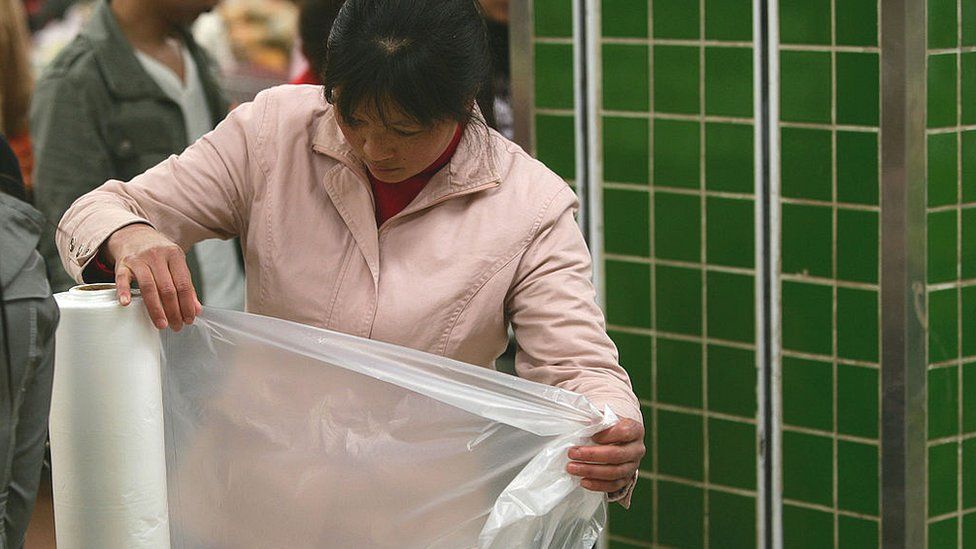The thin plastic bags that are typically used to hold fruits or vegetables have now been included in New Zealand's ban on plastic bags in supermarkets, making it the first nation in the world to do so.
The decision, which became effective on Saturday, is a component of a larger government initiative to ban single-use plastics.
Since take-home plastic bags were outlawed in 2019, the majority of customers now bring their own bags to stores.
Many nations have recently imposed a fee or a ban on plastic bags.
Associate Environment Minister Rachel Brooking stated that New Zealand produces an excessive amount of waste, particularly plastic waste.
She added that since the ban on thicker bags went into effect in 2019, more than one billion plastic bags had been avoided.
The new initiative is anticipated to stop the use of 150 million plastic bags annually.
Critics worry that consumers might simply put their groceries in the disposable paper bags that are still offered by supermarkets.
We really want to reduce single-use anything packaging, but it's still worthwhile to do this, Ms. Brooking said.
Therefore, she continued, "we want people to bring their own bags, and supermarkets are selling reusable produce bags.
Reusable polyester mesh bags are now available from the supermarket chain Countdown, which has more than 185 locations nationwide.
In doing so, the business hopes to persuade consumers to use reusable bags for fruits and vegetables.
According to Catherine Langabeer, the head of sustainability at Countdown, "We know change is hard and (it) will take them a little while.". "Some of our customers are irritable. ".
The New Zealand government has made strides in other climate change initiatives.
It made the tax proposal in October. Farm animals like sheep and cattle produce greenhouse gases.
By 2025, farmers will be required to pay for agricultural emissions under the first ever scheme.
About half of the nation's emissions come from the agricultural sector.







